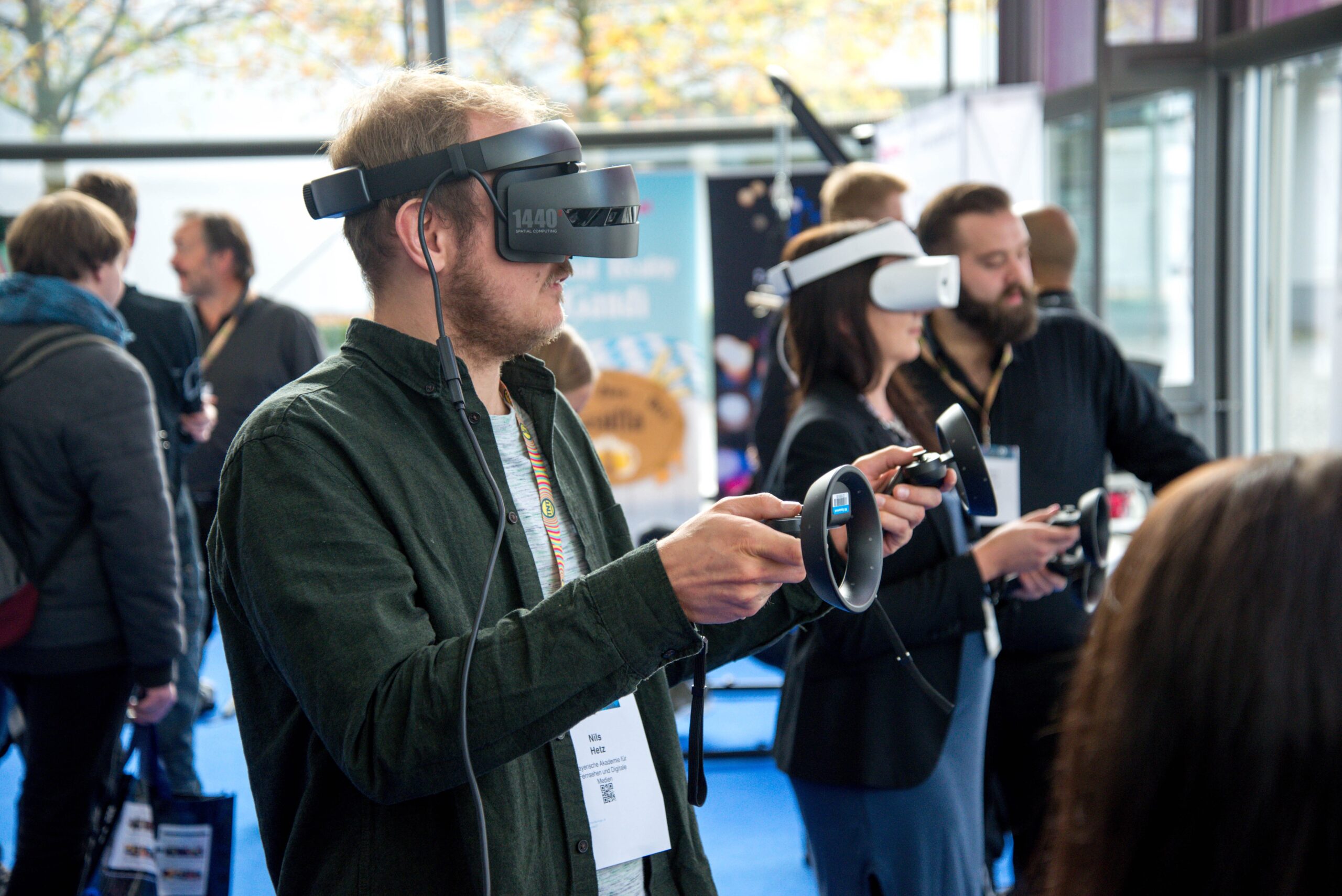When we first looked at the evolving world of retail, we focused on trends in the areas of technology and sustainability. In this blogpost, we’ll dive into a suddenly hot topic—the rapidly changing notion of the experience of being in-store.
Experiential Retail
Experiential retail refers to the creation a memorable brand experience for customers through things like pop-up stores, brand activations, and other interactive events. Retailers are using experiential retail to build brand awareness and create a sense of community among their customers. This can be done by creating interactive and engaging experiences that allow customers to engage with the brand in a new and exciting way, like VR or AR experiences.
Take H&M for example—the clothing retailer recently launched a concept store in Brooklyn that morphs retail with technology and social media in a way that is gravitating with its customers and driving sales.
On a more macro level, shopping malls have started focusing more on entertainment to attract the shifting preferences of shoppers. Online shopping has made it increasingly important for malls to offer something unique and compelling that can’t be found online. Malls have long offered a range of entertainment options to attract customers, including movie theaters, bowling alleys, and arcades. More recently, malls are offering unique and immersive experiences, such as interactive exhibits, virtual reality experiences, and other forms of technology-based entertainment. Malls are also focusing on creating a sense of community by hosting events, offering classes and other unique activities that bring people together to create a sense of belonging and engagement that can’t be found online.
Small Format Experience Stores
Small format experience stores, also known as “micro-stores” or “pop-up shops,” should continue to be a popular trend in retail. These stores are typically smaller in size than traditional brick-and-mortar retail and are designed to offer a unique and immersive shopping experience for customers. They often feature interactive displays, events, and personalized customer service. They can be used to test new products, target specific demographics, or generate buzz for a brand, and can be found in high-traffic areas such as shopping centers, airports, and downtown areas.
An important off-shoot of the small format trend can be found among larger retailers who are opening highly targeted small format versions of themselves to increase consumer accessibility, provide a more convenient shopping experience, increase store counts with lower overhead investment, and increase brand awareness. A good example of this approach comes from big-box heavyweight Target, who is betting big on small format stores in dense urban areas and near college campuses.
Augmented Reality & The Metaverse
Retailers are beginning to embrace the use of augmented reality tools in several ways, such as virtual try-ons, virtual tours of products or stores, product demonstrations, and even virtual styling where a customer can see how items like furniture or home décor might look in their own space. It all appears to be a precursor to the emerging retail metaverse.
One well-known retailer that appears to be on the cutting edge of testing in this area is Bloomingdales. In late 2022, Bloomingdales celebrated its 150 year anniversary by opening a new virtual store, featuring exclusive collections from brand like Polo Ralph Lauren, Mark Jacobs and Baccarat. Visitors to the virtual store can click and drag to look around and select products to learn more about them. The store also includes a gaming component with a scavenger hunt that unlocks additional content.
This spring, Bloomingdales will also enter the emerging world of Non-Fungible Tokens (NFTs) by dropping an ultra-limited, NFT-style t-shirts only available at The Dubai Mall. Just 150 of these blockchain-registered shirts will be available for consumers. The idea is to generate social media buzz and drive customers to retail for a shot at getting an exclusive and unique product.
The testing efforts of a major chain like Bloomingdales serves notice that the emergence of the metaverse has the potential to radically change many aspects of the retail experience. It’s in its early stages, and timing of mainstream adoption is still uncertain…but it’s coming.
Retail merchandising is a constantly evolving field, and retailers must stay on top of the latest trends to remain competitive and attract new customers. Frontier Retail was founded 15 years ago with one simple goal—to elevate the customer retail experience by staying on the leading edge of merchandising trends and technology. We design head-turning, engaging displays and fixtures for brands like Adidas, Under Armour, Converse, Estee Lauder, Chanel, COACH, and more. Experience the Frontier difference for your next retail project.
